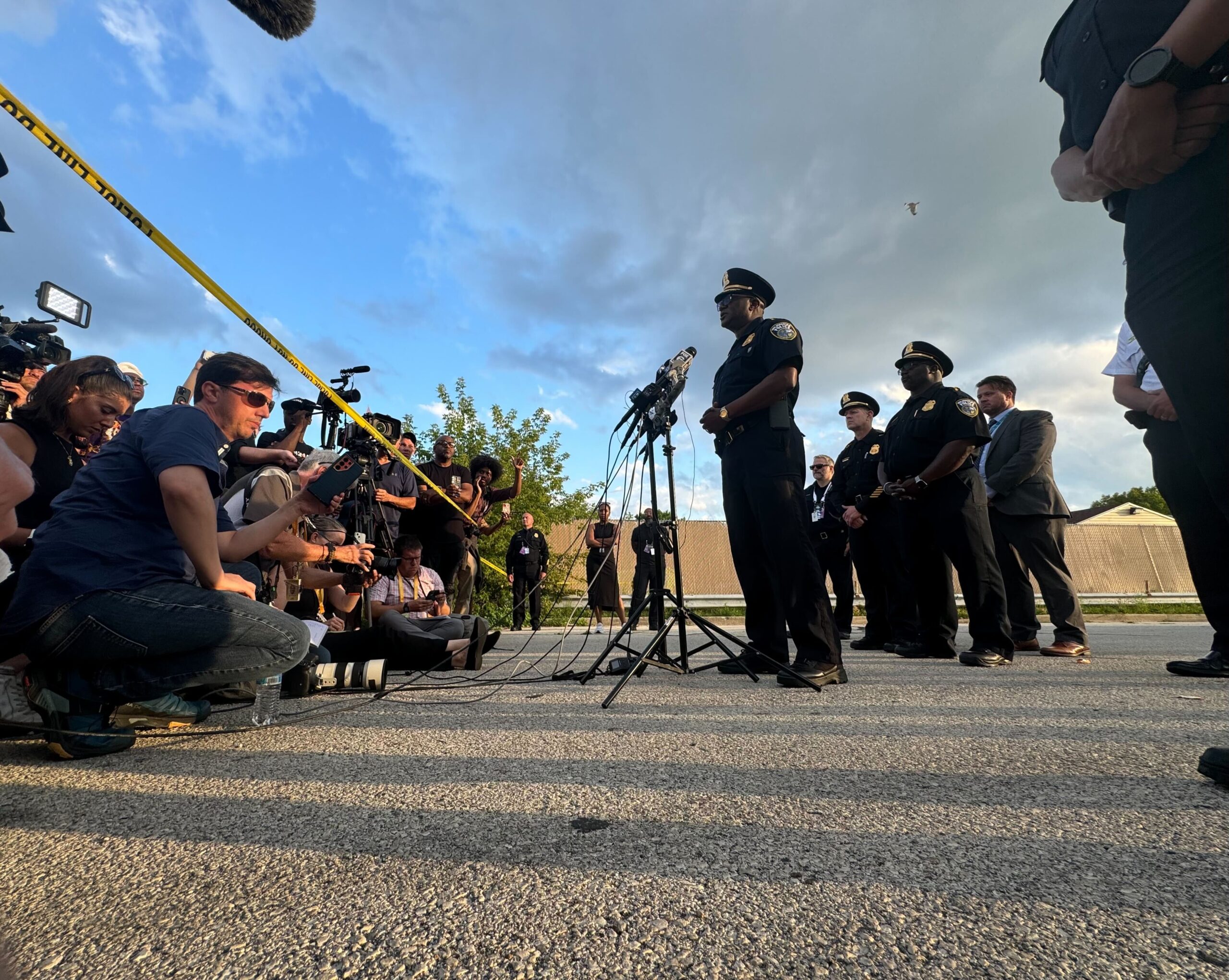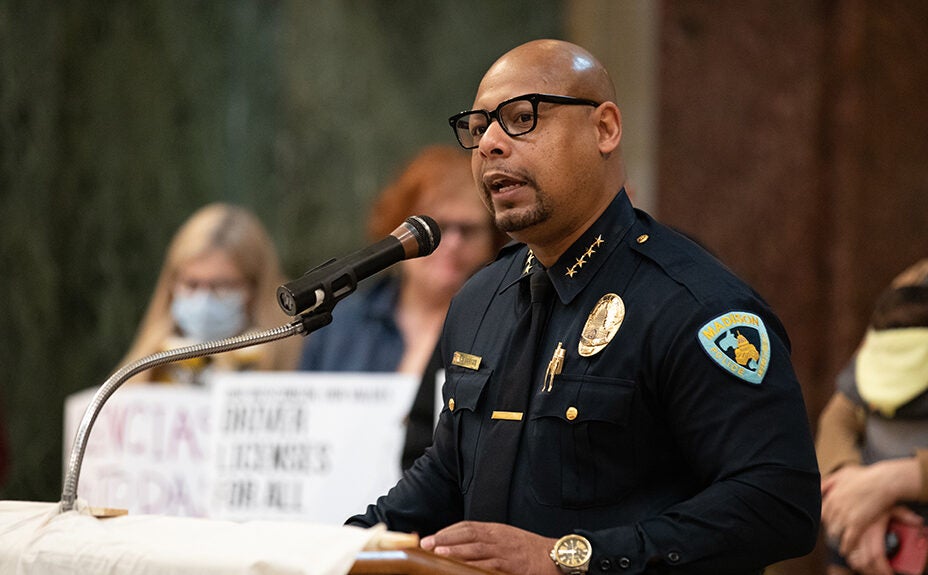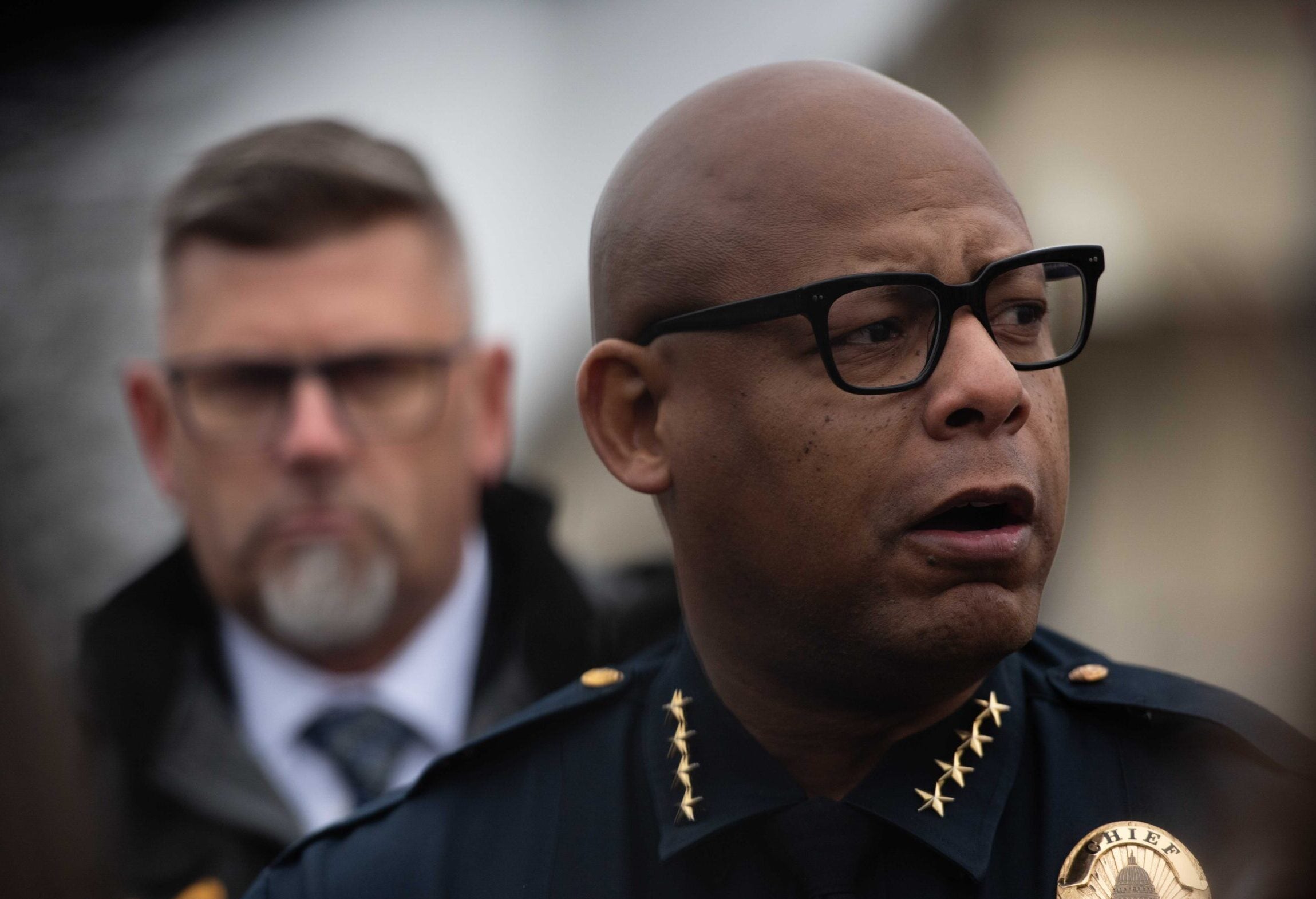Madison acting Police Chief Victor Wahl said he won’t be looking to stay in the position permanently — but he could still serve as chief for months.
Until last weekend, Wahl was second-in-command to former Police Chief Mike Koval when his boss abruptly announced his retirement after a controversial five-year tenure. During Koval’s term, the department drew criticism for fatal use of force incidents and Koval’s own sharp tongue.
Wahl said the most-senior assistant chief — this time, himself — usually rises to the role of acting chief. The Police and Fire Commission are expected to officially name an interim chief at their next meeting on Oct. 14, and Wahl said he has no reason to believe they won’t confirm him.
Stay informed on the latest news
Sign up for WPR’s email newsletter.
If that’s the case, Wahl said he’ll return to his assistant chief job after a permanent chief is found.
“It’s important to me that we have a smooth transition here,” he said. “If I’m doing this position, but I’m also competing for it permanentl, it sort of has a different flavor to it, like I’m auditioning. And I think it makes it more difficult to do the job.”
Wahl joined the Madison Police Department in 1991, working the night shift before rising in the ranks to become assistant chief to Koval. In between, he held a wide variety of positions. For two years, he handled complaints about police misconduct and has advocated for the use of non-lethal use of force methods, such as use of Tasers.
Besides smoothing the transition between his tenure and Koval’s, Wahl will deal with the city’s recommendations on new police oversight methods — such as creating a position for a police auditor — and the budget process, which Koval said he retired to avoid.
Wahl said the hiring process that promoted Koval to chief took about seven months. He guessed this process could take even longer because of turnover on the Police and Fire Commission.
Some longtime police policy activists in Madison are skeptical that a new chief will bring the change they want to see in the city’s police department. Brandi Grayson, a strong critic of Koval who advocated for reform throughout his tenure, said she doesn’t have much faith in any new chief that served under him.
“If he was under the training and direction of Chief Koval, I’m sure he’s one and the same, and I hate to say that,” she said, referring to Wahl. “But usually, policies, procedures and culture is from top to bottom.”
Wahl himself said he’s much more reserved than his famously brash ex-boss.
“Chief Koval and I, I think, are very much aligned in terms of substance and philosophy and perspective and what we think a police agency should be and should do,” Wahl said, with a laugh. “We’re probably pretty far apart in terms of style.”
Koval didn’t take suggestions well, said Grayson, and his permanent replacement needs to listen to the needs of Madison’s communities of color, which she said are over-scrutinized by police.
“When you are speaking of a community police model, the people in the community have to trust these folks there so that when something does happen, that we feel safe enough to call the police and say, ‘Hey, we have a neighbor two houses down that’s participating in A, B and C,’” said Grayson.
And to achieve that, she added, open communication between activists, civilians and police is imperative.
“For me, as it relates to gender, or race, or how people identify, is irrelevant to who becomes the chief of police,” said Grayson. “For me, it’s more about mentality, because being a black person or a woman doesn’t mean that you will have these open, honest community conversations.”
Wahl said he considers those conversations an important part of being chief of police.
“As chief, I think it’s my job to listen to everybody in the community and to hear all positions, even ones that I don’t agree with or that I don’t think ultimately are going to have merit,” he said.
Wisconsin Public Radio, © Copyright 2025, Board of Regents of the University of Wisconsin System and Wisconsin Educational Communications Board.



